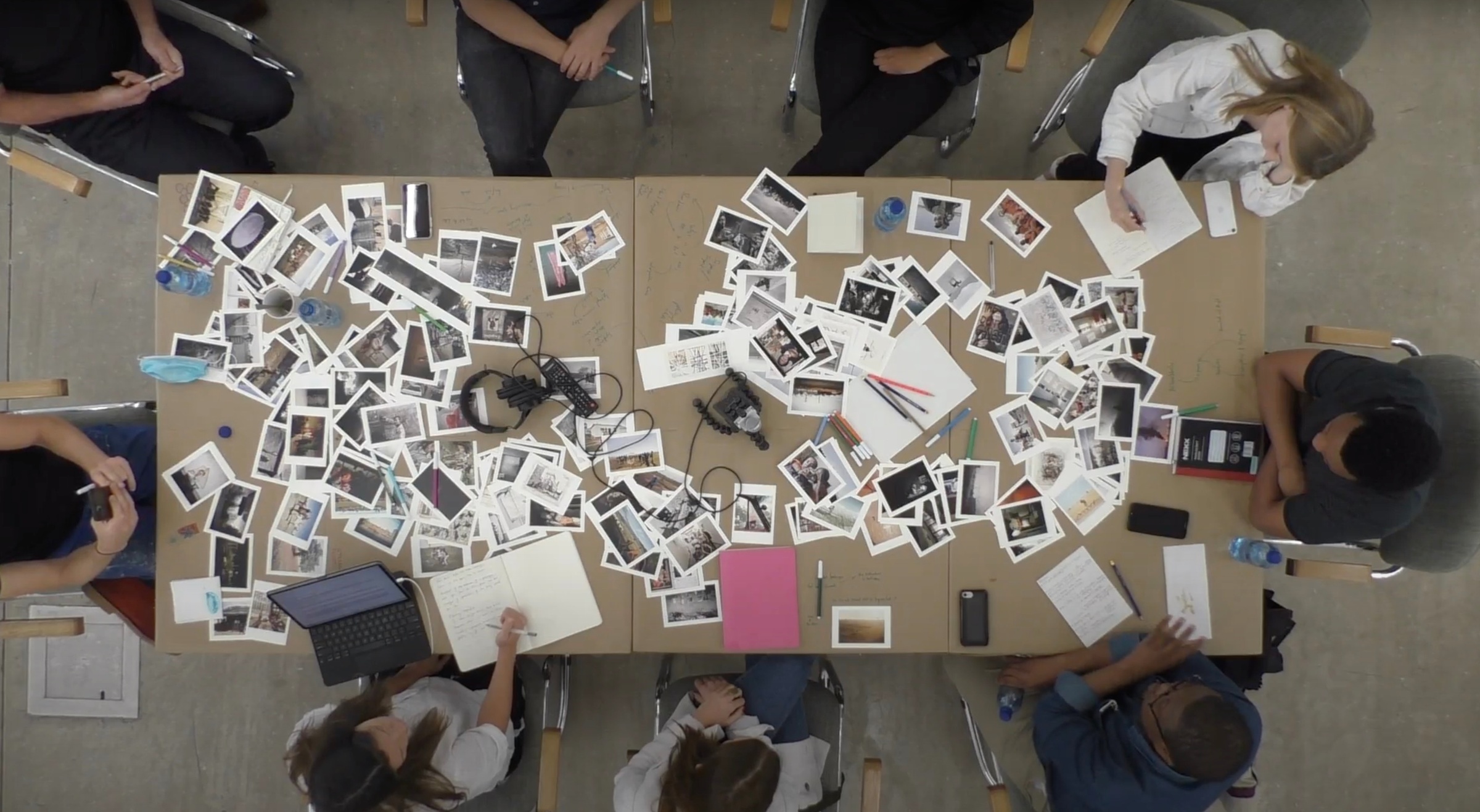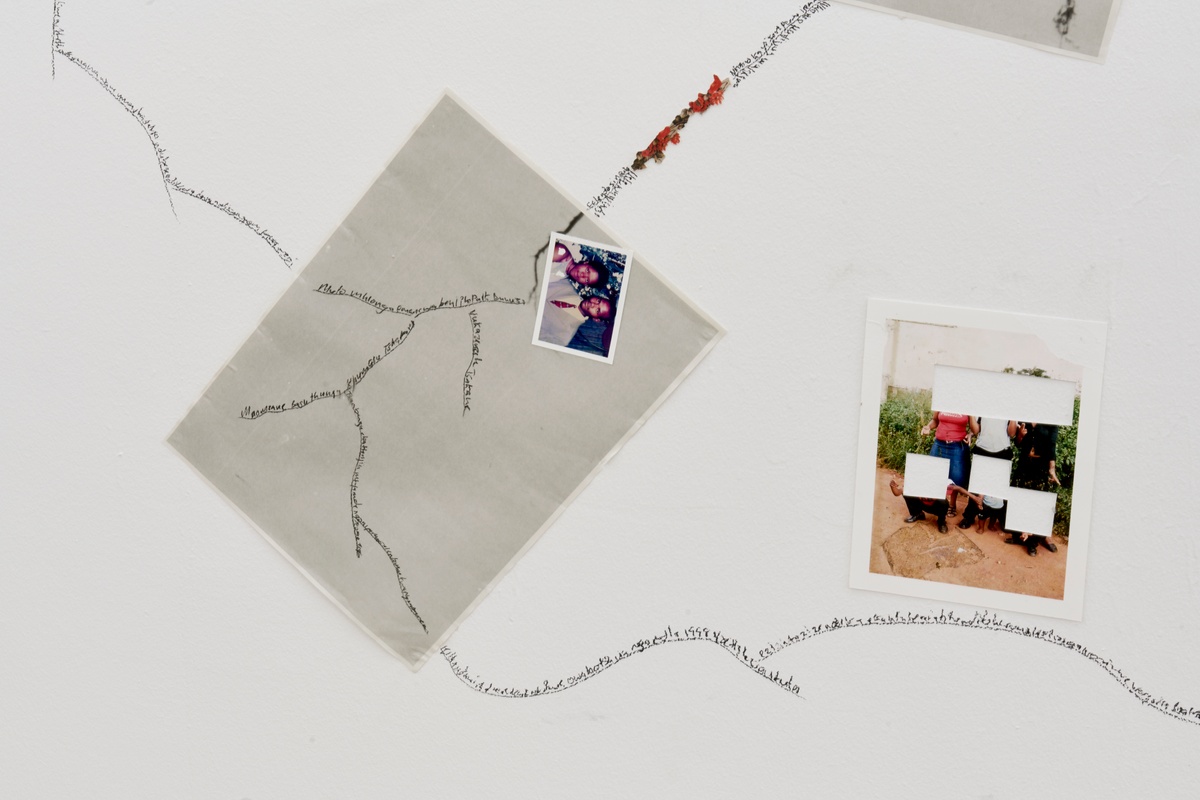
Participating practitioners:
Thembinkosi Goniwe
Khanya Mashabela
Sean O'Toole
Lindokuhle Sobekwa
Mikhael Subotzky
"Photographs are like infidels – without captions or anything, they're just loose, you just take whatever, you interpret it how you want to, you know? And maybe that's the beauty of infidels. Maybe that's also their betrayal."
– Lindokuhle Sobekwa
In lieu of the exhibition opening (postponed due to a fire in a neighbouring building), three practitioners writing for Tell it to the Mountains joined Lindokuhle Sobekwa and Mikhael Subotzky in a roundtable discussion. Postcard-sized prints of the artists' images offered themselves as prompts, and a brown-paper tablecloth lent itself to note-taking. The conversation followed a meandering path of segues and suppositions, touching on such wide-ranging topics as semiotics, ancestry, and horizon lines. Set in the centre of the half-hung gallery, the table became a productive and generative site of exchange. Such engagements are central to A4's expanded definition of the exhibition, which shifts away from staid finality towards the provisional; pursuing processes and prototyping strategies, and facilitating practitioner-led dialogues.
"Photographers seldom acknowledge how much they are looking to play out internal dialogues onto the world, unconsciously or consciously. Photography can be a betrayal of the subject – is always a betrayal of the subject – and perhaps it's a betrayal in a deeper, almost metaphysical sense too. The photograph can never stand for the experience or the object. It creates the illusion of empathy when, in truth, it's an expression of your internal violence or anger or fear."
– Mikhael Subotzky"Having looked at your photography and how it has been changing, it seems you feel like you failed your own sense of obligation. With other artists, their obligations are largely to themselves and their vision. I wonder how much you feel that your obligation to the subject is outweighed by your obligations to the environment in which the work is shown, and to the audience?"
– Khanya Mashabela"I've realised over time how important lineages and chronologies are in relationships and in how photographers understand what they do. Their conversations are very intimate, wrapped up in biography."
– Sean O'Toole"I'm asking 'what is it that is at play other than that which I know or I see?' That, for me, enriches us because now we are searching for things that are not self-evident. We are forced to pay attention to subtleties, to nuances. We are forced to open up the images for other possibilities; to understand – that's the complexity of life."
– Thembinkosi Goniwe


